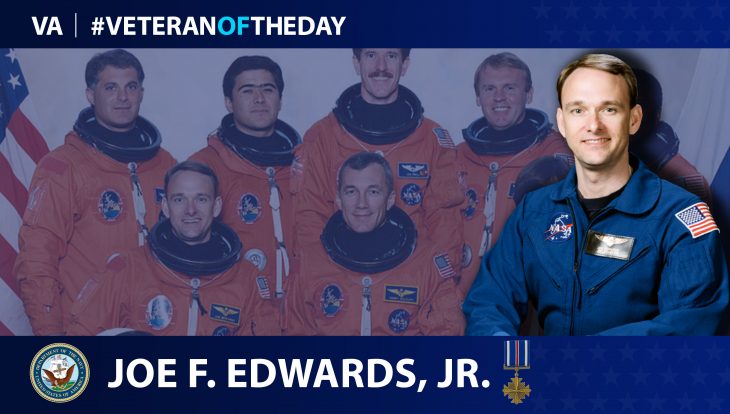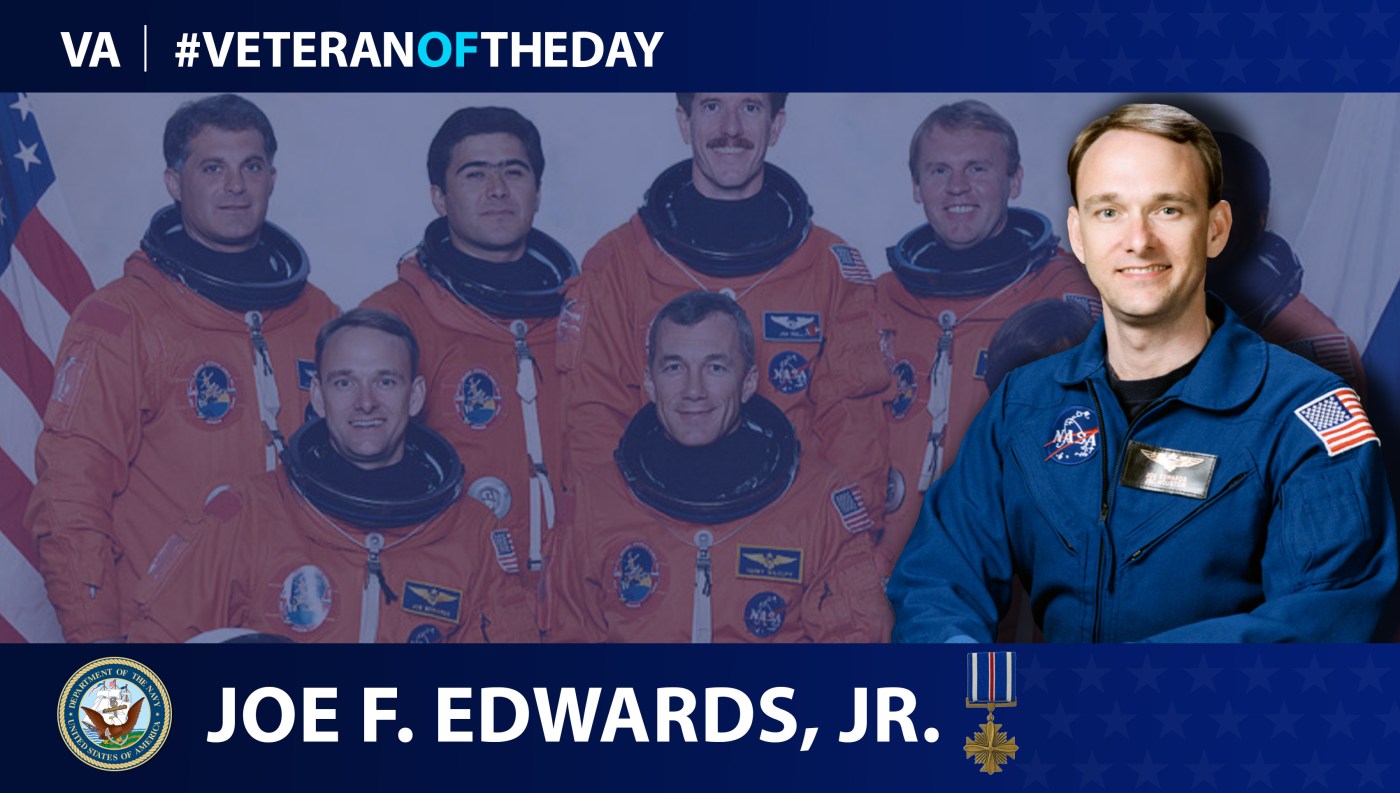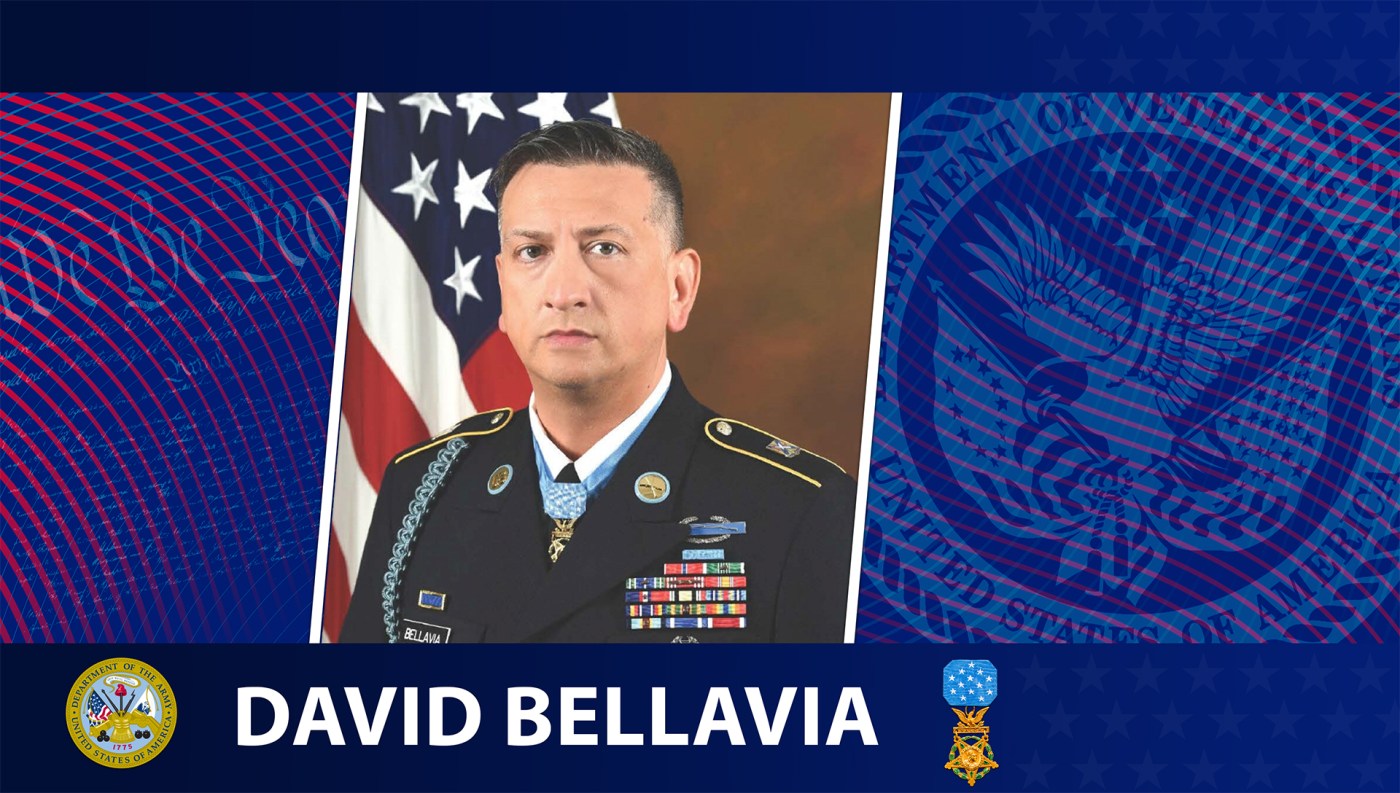
Today’s #VeteranOfTheDay is Navy Veteran Joe Frank Edwards Jr., who served as a fighter pilot during the Persian Gulf War and a NASA astronaut.
Joe Frank Edwards Jr. was born in Richmond, Virginia, on Feb. 3, 1958. His father, Joe Frank Edwards Sr. was an Air Force and Navy Veteran. Edwards Jr. has two younger brothers, both of whom are also Veterans.
“I never really had a civilian life,” Edwards said in a 2018 interview in Washington DC. “I lived on Air Force bases, so I was born into the Air Force, I was born into the military. I’ve had a military ID card since I was ten years old.”
He knew he wanted to be a Navy fighter pilot when he was 10. In high school he applied to both the Air Force and Naval academies.
Edwards decided to attend the Naval Academy in Annapolis, Maryland, where he graduated with a bachelor of science in aerospace engineering in 1980. After graduating, Edwards arrived in Pensacola in June 1980 to begin primary flight training. He finished at the top of his class in December 1980 and moved to Mississippi for jet training. In February 1982, Edwards transferred to Fighter Squadron 101. Edwards continued his education, graduating from the U.S. Navy Fighter Weapons School in 1984 and Test Pilot School in 1986. During his first six years of operational flying, he was the squadron’s pilot of the year five times.
In November 1991 Edwards was flying in the Persian Gulf when the radome detached from his plane, destroyed the canopy upon impact, and hit him in the face. Edwards was temporarily blinded in his right eye, but he managed to make an emergency descent with a broken collarbone and collapsed lung. For his daring feat he was awarded the Distinguished Flying Cross. While recovering from his injuries, Edwards worked in the Operations Directorate of the Joint Chiefs of Staff in Washington D.C. and earned his master of science in aviation systems from the University of Tennessee, Knoxville, in 1994.
In December of that year, Edwards was selected from over ten thousand applicants to be a NASA astronaut. On Jan. 22, 1998, Edwards piloted the space mission STS-89, which transferred scientific equipment and water from the Space Shuttle Endeavour to Russia’s Mir space station.
Edwards retired from NASA and the Navy on April 30, 2000, in order to focus on raising his newborn daughter. He became involved with several technology and aviation companies, and he remains a member of the Aircraft Owners and Pilots Association, as well as the Experimental Aircraft Association. During his career, he flew over 4,000 hours and logged more than 650 arrested landings.
Thank you for your service!
Nominate a Veteran for #VeteranOfTheDay
Do you want to light up the face of a special Veteran? Have you been wondering how to tell your Veteran they are special to you? VA’s #VeteranOfTheDay social media feature is an opportunity to highlight your Veteran and his/her service.
It’s easy to nominate a Veteran. Visit our blog post about nominating to learn how to create the best submission.
Contributors
Writer: Kacie Goeppner
Editor: Brooke Wolfenbarger, Katie Wang
Fact checker: Ciara Nalsa, Scott Conway
Graphic artist: Chalsi Lee
Topics in this story
More Stories
This week’s Honoring Veterans Spotlight honors the service of Army Veteran David Bellavia, who received a Medal of Honor from the Iraq War’s deadliest operation, the Second Battle of Fallujah.
This week’s Honoring Veterans Spotlight honors the service of Army Veteran Scotty Hasting, who served in Afghanistan.
This week’s Honoring Veterans Spotlight honors the service of Army Veteran Roy Sheldon, who served in 97th General Hospital in Frankfurt, Germany.






